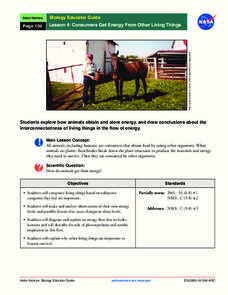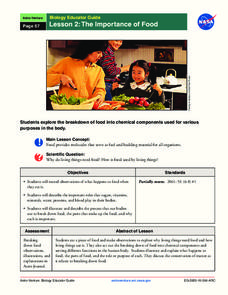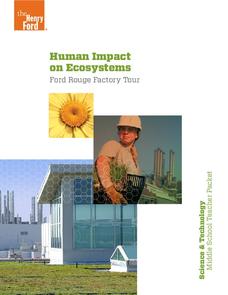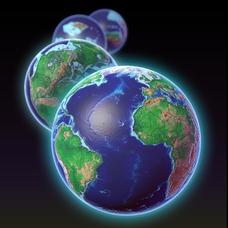American Chemical Society
Why Does Water Dissolve Salt?
Individuals explore solubility by modeling how water dissolves salts. They then view a video and compare how well water and alcohol dissolve salts, relating their comparisons to the structure of each molecule.
American Chemical Society
Surface Tension
A drop of dew holds a sphere shape even when sitting on a seat thanks to the surface tension of water. Learners observe the phenomena of surface tension in water. Through demonstrations, hands-on activities, and discussions they explore...
American Chemical Society
Protons, Neutrons, and Electrons
Atomic bombs harness the power in the nucleus of an atom, creating devastating power and damage. Classes review parts of an atom by charging a piece of plastic and holding it near their fingers, discussing what is happening and why....
American Chemical Society
Can Liquids Dissolve in Water?
How does food coloring work? Classes watch a demonstration showing liquids dissolving in liquids. In groups, they then explore the ability of other liquids to dissolve in water (alcohol, mineral oil, and corn syrup) by setting up and...
American Chemical Society
Why Does Water Dissolve Sugar?
Did you know that if you wait long enough, the M on the outside of an M and M will float to the surface when submerged in water? Learners observe the sugar coating of an M and M while it is dissolving in water. They explain how this...
American Chemical Society
Changing State: Condensation
When you have a cold drink and you notice the water forming on the outside, it is literally pulling the water from the surrounding air to form the condensation. After watching a demonstration of condensation forming on a glass,...
Curated OER
Sustainability and Extinction
Galapagos Penguins are the only penguins on earth that live north of the equator (in the wild). In this last lesson plan a discussion on how the Galapagos islands developed their populations and diversity sparks the introduction. Two...
Curated OER
Hedgerows
Hedgerows prevent soil erosion, capture pollutants running off fields, store carbon to help combat climate change, and provide homes for predators of many pest species. The biodiversity lesson begins with an activity that discusses why...
NASA
The Cycle of Matter
An educational instructional activity focuses on the idea of conservation of matter through a demonstration of the water cycle, a discussion of digesting food, and the path of carbon and oxygen atoms as they change form.
Curated OER
Artificial Selection
The second lesson in the series begins with a starter activity discussing wild versus domesticated animals. Then, scholars play a card game, with optional variations, to emphasize artificial selection. Next, they attend a field trip to a...
Curated OER
Darwin’s Bees
What do you call a bee born in May? A maybe! This first instructional activity in a series of four begins with a starter activity to get scholars thinking about the topic. Then a circus, or circuit of seven activities, show Darwin's...
NASA
Biology Training Conclusion
Gravity is just one consideration when determining human habitability on a new planet. The lesson connects four different units and starts with connecting the various systems: planetary systems, human body systems, etc. After scholars...
NASA
Consumers Get Energy From Other Living Things
How do plants and animals get their food? Learn about where energy comes from, how animals store energy, and aerobic respiration, in a instructional activity that allows scholars to diagram energy flows.
NASA
Decomposers Get Energy From Dead Things
When life gives you mold, make penicillin. Scholars design an inquiry experiment to determine what causes rotting and mold growth. It also covers decomposers and the important role they play for other living things.
NASA
The Importance of Food
Pupils make observations while eating food. They act out the process of food breaking down in the body and the roles of various chemical components, such as sugar and protein. It concludes with an activity illustrating the process and a...
NASA
Biology Training Module
Are you a koalafied biologist? The lesson begins with research about human survival and our ecosystem. Then, an online training module simulates the effects of changes to the plants and animals in an ecosystem. Finally, scholars research...
Centers for Disease Control and Prevention
Teach Mrs. Jones' Class about Microbes
During a biology lesson, scholars research microbes, design a lesson plan using an outline, and present the lesson to the class.
Henry Ford Museum
Human Impact on Ecosystems
An environmenta science unit includes three lessons plus a cumulative project covering the ecosystem. Scholars follow the history of the Ford Rouge Factory from its construction on wetlands and how it destroyed the environment to its...
Howard Hughes Medical Institute
EarthViewer
Can you imagine Washington DC and London as close neighbors occupying the same continent? Learners will be fascinated as they step back in time and discover the evolution of the earth's continents and oceans from 4.5 billion years ago to...
NOAA
A Moving Crust
Young scientists piece together the geological puzzle that is the earth in the third and final lesson of this earth science series. With the help of numerous multimedia resources and a series of engaging hands-on activities, students...
NASA
The Science of the Sun
There's more to that glowing ball of light in sky than most children realize. From the overall structure of the solar system, to the changing of the seasons, these hands-on lessons open the eyes of young scientists to the important role...
Government of South Australia
Don't Waste Your Energy
Don't lift another finger, this physical and environmental science unit has everything you need to begin teaching your class about energy. Starting with a look at the greenhouse effect, these lessons and activities take young scientists...
Norwich Institute for Language Education
Simple Machines
Planning a unit on simple machines? Save some time and energy with this collection of lessons and activities that explores how these devices are used in the real world to make life a little easier.
NNF
Floods Happen
Did you know that flooding is the most common natural disaster in the United States? Prepare your learners with the facts about floods and offer them the proper knowledge and tools for dealing with this type of emergency.

























